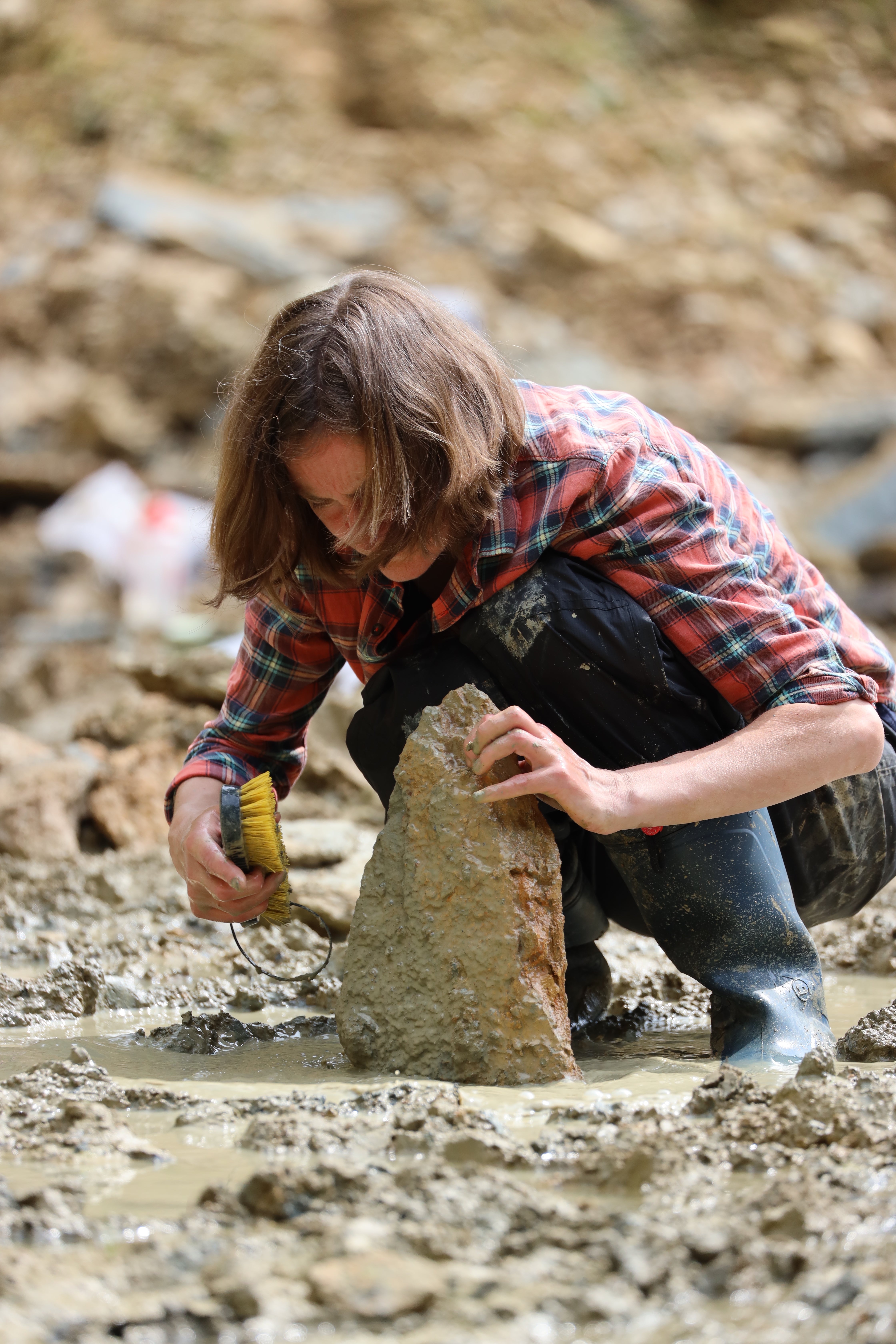Largest collection of marine fossils ever discovered in UK found using Google Earth
Site may have been unearthed by chance but is described by scientists as ‘exceptional,’ writes Sam Hancock


A pair of amateur palaeontologists have helped the Natural History Museum (NHM) uncover the UK’s biggest-ever rare marine fossil site, using Google Earth.
The finding of hundreds of samples, from the Middle Jurassic – 174 to 164 million years ago – will hopefully permit new research to go ahead that was never before possible due to the small number of samples held in collections, experts said.
In the treasure trove of fossils were feather stars and sea lilies, known respectively as stalk-less and stalked crinoids, plus Asteroidea starfish, all classified as rare because their skeletons quickly fall apart after death and require instant burial for preservation.
Neville and Sally Hollingworth, from Swindon, happened onto the Wiltshire site during the second lockdown while researching the area’s geology online.
Dr Hollingworth, who is an honorary research associate at the University of Birmingham’s school of geography, earth and environmental science, spoke from the dig to explain how he and his partner “noticed on Google Earth this little quarry and got in touch with the site manager and asked if we could visit”.
“So, we came on down to the bottom of the quarry and we noticed that the floor of the quarry was a clay layer, and on the surface of the clay with lots and lots of little fossils which we call crinoids or feather stars,” he said.
The couple took a slab from a site and cleaned it up at home, where they discovered an “incredible sight” of sea lilies, crinoids, starfish and brittle stars.
Ms Hollingworth described the fossils’ level of preservation as “stunning”, considering their age.
After being contacted by the couple, Dr Tim Ewin, a senior curator in earth sciences at the NHM, secured funding for a dig at the site and was amazed at the number of specimens discovered.
“We know that they were buried during life, because we’ve got some evidence to show that the animals are adopting what we call stress position to being buried, they’ve closed up their arms to try to stop the mud getting into their mouths and other orifices,” Dr Ewin explained.
“We knew instantly that it was an important site because of the quality of preservation, the number of specimens that we could find and that is exceptional.”

Describing the initial digging days in early July, Dr Ewin said groups of people spread out across the site and called out whenever they made a new discovery. So many specimens were found, he said, that a triage process was implemented to decide what to leave behind.
“It’s a really nice problem to have because these fossil starfish and sea urchins are really rare,” the curator said, adding: “Normally we have the problem, ‘Are we going to find enough?’ This is an alien sort of position to be in where we’ve got so much we’re having to contemplate leaving behind really nice material.”
Researchers believe that while some of the fossils belong to creatures already known, three so far could be new discoveries: a type of feather star, a brittle star and a sea cucumber. Meanwhile, other specimens will allow experts to study the evolution of the animals as they have found both juvenile and adult samples, and even a starfish with an arm being regenerated, the scientists said.
Describing the area that the remains were found in, Dr Ewin said there was probably a river delta entering the sea “fairly close by – perhaps five to 10 miles away – to the site where the echinoderms were living”.
“In order to get large numbers of echinoderms, you need lots of nutrients, and to get lots and nutrients and lots of fossil wood into a specific marine environment (ie where we are finding the fossils) would probably require a river delta,” he clarified to The Independent.
Praising the “exceptional site”, Dr Ewin added: “It’s going to allow us to do some really cool science.”
Déjà vu
This is not the first time Google Earth has helped scientists find rare fossils.
Back in 2010, a scientist discovered the remains of Australopithecus sediba, some of humanity’s earliest ancestors, which date back almost 2 million years and were among the first species of hominid thought to have walked on two legs.
The fossils – incomplete skeletons of a juvenile male and an adult female – were located in South Africa’s “cradle of humankind” world heritage site by Lee Berger, a professor from the University of the Witwatersrand in Johannesburg.
Using Google Earth, Prof Berger discovered about 500 previously unidentified caves at the site, adding to its already-known 130. Experts at the time said each was a “potential fossil exploration area”.
PA contributed to this report


Join our commenting forum
Join thought-provoking conversations, follow other Independent readers and see their replies
Comments